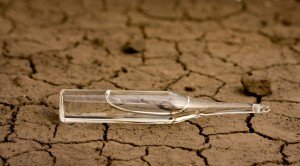 Antibiotic-resistant pathogens such as E. coli and methicillin-resistant Staphylococcus aureus (MRSA) have created a need for new antibacterial approaches. Research featuring one such antibacterial innovation using clay, a material used for its medicinal properties since ancient times, was reported in PLOS ONE (the journal of the Public Library of Science).
Antibiotic-resistant pathogens such as E. coli and methicillin-resistant Staphylococcus aureus (MRSA) have created a need for new antibacterial approaches. Research featuring one such antibacterial innovation using clay, a material used for its medicinal properties since ancient times, was reported in PLOS ONE (the journal of the Public Library of Science).
In this case, the innovation involves the antibacterial mechanism: specific metal ions attached to the clay. Rather than taking advantage of clay’s absorption power, this study found that the effective antibacterial mechanism is the release of specific metal ions with microbiocidal properties from the clay’s surface.
Comparisons of the antibacterial effect on pathogens of similar clay samples with different levels of iron, copper, cobalt, nickel, and zinc ions demonstrate the dominant role of those ions. Variability of antibacterial strength in clay samples correlates with the clay’s chemical variability.
Now that the mechanism has been demonstrated, further research will look to standardize the composition and antibacterial efficacy of clay, and define appropriate safety precautions to avoid effects of toxic minerals that are often also present in clays. If this works out, it could lead to another point for ancient wisdom’s applicability to modern research innovations.
PurThreadTM Technologies Inc. is dedicated to developing proprietary antimicrobial textile technology. Our patent-pending, integration technology and fiber formulations incorporate an EPA-registered antimicrobial additive into every fiber and yarn to protect the fabric from degradation. Learn more about our antimicrobial textile technology.
PurThread also makes a range of freshness products for other markets such as the military, emergency first responders and performance athletic wear in which our next-generation technology and fiber formulations expand the high performance options available to protect fabrics from odor, mold and mildew causing bacteria.
Speak Your Mind